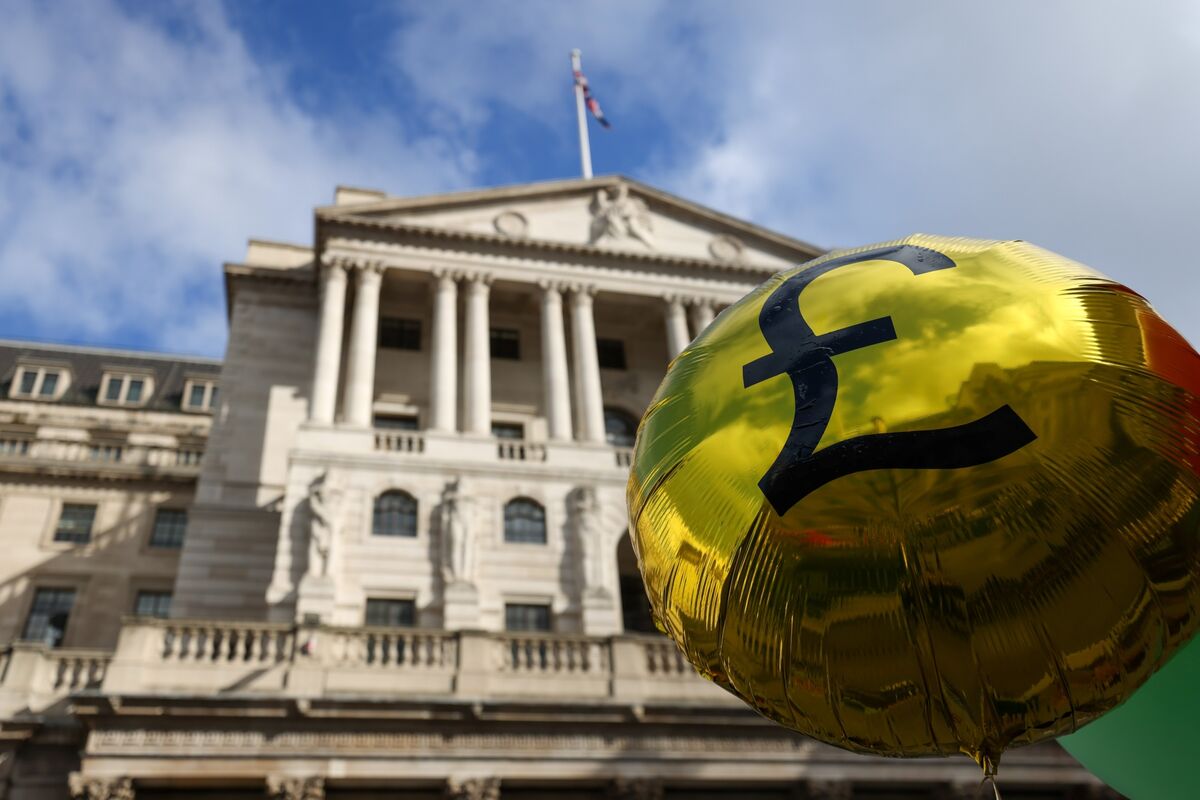Market Reaction To UK Inflation: Pound Up, BOE Cuts Less Likely

Table of Contents
Impact of Lower-Than-Expected Inflation on the Pound
The lower-than-anticipated inflation figures have had a demonstrably positive impact on the pound sterling, boosting investor confidence and prompting a noticeable strengthening of the currency.
Pound Sterling's Appreciation
The better-than-expected inflation data significantly improved the perception of the UK's economic outlook. This led to several key positive developments:
- Increased investor confidence: Lower inflation reduces concerns about economic instability and encourages investment in UK assets.
- Foreign investment flows: A stronger economic outlook attracts foreign investment, increasing demand for the pound.
- Improved UK economic outlook: Lower inflation suggests a healthier economy, bolstering confidence among investors and businesses.
- Speculation on future BOE policy: The reduced likelihood of interest rate cuts further supports the pound's value.
Analyzing the Currency Market's Response
Following the release of the inflation data, the GBP/USD and GBP/EUR exchange rates experienced a noticeable upward trend. While precise figures will vary depending on the timing of the data release and market fluctuations, a general strengthening of the pound was observed.
- Short-term vs. long-term impacts: The short-term impact was a rapid appreciation of the pound, while the long-term effects will depend on subsequent economic data and BOE policy decisions.
- Comparison to previous inflation data releases: This reaction contrasts with previous instances where higher-than-expected inflation weakened the pound.
- Influence of global economic factors: Global economic conditions and other geopolitical events also play a role in shaping the currency markets, influencing the GBP's overall performance.
Implications for UK Exporters and Importers
The strengthening pound has significant implications for UK businesses engaged in international trade.
- Increased import costs: A stronger pound makes imports cheaper, potentially benefiting consumers but increasing competition for domestic producers.
- Decreased export competitiveness: Conversely, a stronger pound makes UK exports more expensive in foreign markets, potentially reducing competitiveness.
- Potential impact on balance of trade: The net effect on the UK's balance of trade will depend on the relative magnitude of changes in imports and exports.
Reduced Likelihood of BOE Interest Rate Cuts
The better-than-expected inflation numbers have significantly reduced the pressure on the BOE to implement further interest rate cuts.
BOE Monetary Policy Outlook
The inflation data provides the BOE with more leeway in its monetary policy decisions.
- BOE's inflation target: The data moves the UK closer to the BOE's target inflation rate, lessening the urgency for rate cuts.
- Analysis of current economic indicators: The BOE will continue to monitor other economic indicators alongside inflation to guide its policy decisions.
- Potential future policy decisions: While rate cuts are less likely in the short term, the BOE’s future policy will depend on evolving economic conditions.
Market Expectations and Speculation
Market expectations regarding future BOE interest rate decisions have shifted considerably.
- Changes in interest rate futures contracts: Futures contracts reflecting expectations of future interest rates have adjusted to reflect a reduced probability of rate cuts.
- Analyst predictions and forecasts: Economic analysts have revised their forecasts to account for the improved inflation outlook.
- Impact on borrowing costs: The reduced likelihood of rate cuts means borrowing costs for businesses and consumers are likely to remain relatively stable.
Impact on UK Government Debt
The BOE's likely stance on interest rates has important implications for UK government borrowing costs.
- Government spending plans: Stable interest rates make it easier for the government to manage its debt and finance its spending plans.
- Debt sustainability: Lower borrowing costs contribute to the sustainability of UK government debt.
- Fiscal policy considerations: The government’s fiscal policy decisions will be influenced by the prevailing interest rate environment.
Factors Contributing to the Unexpected Inflation Data
Several factors contributed to the lower-than-expected inflation figures.
Energy Price Fluctuations
Energy prices have a significant impact on overall inflation.
- Impact of global energy markets: Global energy market dynamics, including supply and demand, significantly influence UK energy prices.
- Government energy support schemes: Government initiatives aimed at mitigating the impact of high energy prices played a role in moderating inflation.
- Seasonal factors: Seasonal variations in energy demand also influence prices and contribute to fluctuations in inflation.
Supply Chain Improvements
Improvements in global supply chains also played a part in easing inflationary pressures.
- Reduced bottlenecks: Easing of supply chain bottlenecks led to improved availability of goods and reduced price pressures.
- Increased production capacity: Increased production capacity helped meet demand without significant price increases.
- Global trade dynamics: Improvements in global trade flows contributed to smoother supply chains and reduced inflation.
Other Contributing Factors
Beyond energy and supply chains, other factors influenced UK inflation.
- Consumer spending patterns: Changes in consumer spending habits and preferences impact prices across different sectors.
- Wage growth: Moderate wage growth helps to contain inflationary pressures.
- Impact of global economic conditions: Global economic factors, such as global growth and commodity prices, continue to have an indirect influence on UK inflation.
Conclusion: Market Reaction to UK Inflation – The Road Ahead
In summary, lower-than-expected UK inflation figures triggered a positive market reaction, strengthening the pound and reducing expectations of BOE interest rate cuts. This response is attributable to a combination of factors, including easing energy price pressures, improved supply chains, and moderate wage growth. To stay ahead of the curve, it's crucial to monitor UK inflation trends and stay updated on BOE monetary policy. Understanding the market reaction to future UK inflation announcements is essential for businesses and investors alike. Subscribe to our newsletter for regular updates on UK economic news and analysis and to deepen your understanding of the UK's economic landscape and the ever-evolving market reaction to UK inflation.

Featured Posts
-
 Bmw Porsche And The Future Of The Chinese Auto Market
May 22, 2025
Bmw Porsche And The Future Of The Chinese Auto Market
May 22, 2025 -
 Angry Pub Landladys Vile Rant At Employee Notice Leads To Heated Exchange
May 22, 2025
Angry Pub Landladys Vile Rant At Employee Notice Leads To Heated Exchange
May 22, 2025 -
 Core Weave Crwv Stock Price Jumps After Nvidia Reveals Stake
May 22, 2025
Core Weave Crwv Stock Price Jumps After Nvidia Reveals Stake
May 22, 2025 -
 Dropout Kings Lose Lead Singer Adam Ramey
May 22, 2025
Dropout Kings Lose Lead Singer Adam Ramey
May 22, 2025 -
 Abn Amros Kwartaalresultaten Analyse En Impact Op De Aex
May 22, 2025
Abn Amros Kwartaalresultaten Analyse En Impact Op De Aex
May 22, 2025
